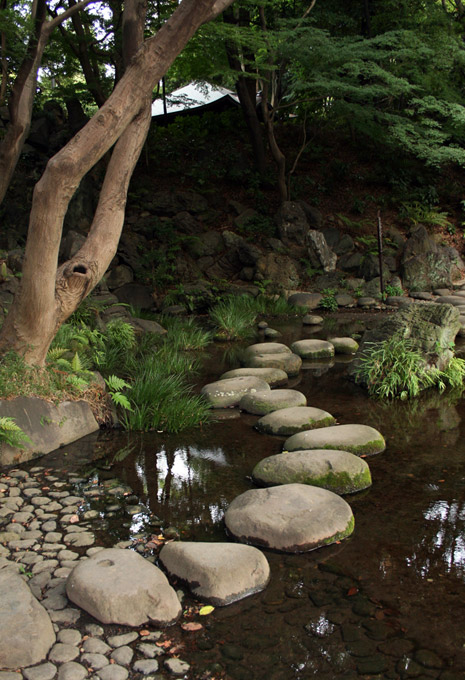|
||
 |
||

Koishikawa
Kourakuen 小石川後楽園 (Tokyo)
(C)2001 Japanese Architecture and Art Net Users System. No reproduction or republication without written permission.
掲載のテキスト・写真・イラストなど、全てのコンテンツの無断複製・転載を禁じます。
|
||||||
| sawatobi 沢飛 | ||||||
| KEY WORD : architecture / gardens | ||||||
| Lit. marsh crossing. A path made of stepping stones (*tobi-ishi 飛石) placed in a shallow garden pond or stream. The stones (called sawatobi-ishi 沢飛石) serve to extend a path across the watercourse, often leading to a central island (nakajima 中島). Both natural and processed flat-topped stones were used, but old mill stones and bridge post stones were most common. Sawatobi, also called sawatari 沢渡, were popular in 'pond-storll' garden, *chisen kaiyuushiki teien 池泉廻遊式庭園 of the mid-Edo period. In a few cases they were used to cross the dry pond (*kareike 枯池) in dry gardens (*karesansui 枯山水). | ||||||

Koishikawa
Kourakuen 小石川後楽園 (Tokyo)
|
||||||
| REFERENCES: | ||||||
| EXTERNAL LINKS: | ||||||
| NOTES: | ||||||
(C)2001 Japanese Architecture and Art Net Users System. No reproduction or republication without written permission. 掲載のテキスト・写真・イラストなど、全てのコンテンツの無断複製・転載を禁じます。 |
||||||